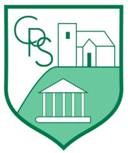Reading
The Reading Journey at Capel-le-Ferne Primary School
Introduction
Reading is a complex skill with many components. Successful approaches to the teaching of reading should encourage children to use a variety of strategies in their pursuit of meaning.
It is important to lay firm foundations in this crucial area of the curriculum and establish a consistent whole school approach to the teaching of reading. We aim to achieve the following:
- Develop an interest in and a love of books, encouraging children to become attentive listeners, independent and reflective readers.
- Develop reading strategies and skills, accuracy, fluency, understanding and response to texts.
- Develop the ability to use and manipulate a variety of texts, both fiction and non-fiction.
- Develop children’s experiences through a variety of text.
Phonics (Reception to Year 2)
Children will be taught early reading phonics skills through The Supersonic Phonics Scheme, in dedicated phonics lessons.
Here at Capel-le-Ferne Primary School phonics is explicitly taught daily using the ‘Supersonic Phonic Friends’ programme.
It is a fully systematic synthetic phonic approach scheme which ensures children develop a passion for reading and the confidence to independently apply each skill when reading and writing.
They will be highly motivated to ‘read with speed’ and ‘write with all their might!’
Child-friendly characters and illustrations underpin the scheme. They are easy to remember with accompanying rhyming phrases that are consistently repeated in every lesson. Every lesson is fun and engaging, and enriched with movement; a fundamental pre-writing skill.
Supersonic Phonic Friends (SSPF) lessons are taught with rhythm and pace, promoting active engagement, and making every minute count. The mnemonics and actions promote physical participation and fun injecting life into Phonics with stimulating, enchanting and brain-friendly Phonics made simple, yet highly effective. Each character is equipped with special skills to support children with their phonic progress and application into reading and writing.
The programme spans six phases of phonics teaching (known as ‘basics’) which are as follows;
-
Firm Foundations in Phonics 1 (the ability to hear the sounds in the words we speak).
-
The Basics 2 (listen, recognise, build, read and write).
-
The Basics 3 (recognise, build, read and write).
-
The Higher Levels Basics 4 (recognise, build, read and write) – moving from 3 sounds (CVC) to four+ (CVCC, CCVC, CCVCC, CCCVCC).
-
The Higher Levels Basics 5 (recognise, build, read and write) – 'Choose to Use' and 'Switch it'.
Daily Supported Reader (Reception to Year 2)
Daily Supported Reading (DSR) is an internationally acclaimed approach to the teaching of early reading in KS1 (and for low readers in KS2). Primarily a whole class programme in year 1 and the end of reception, it has proven success as a small group or 1-1 catch up intervention. The approach involves daily reading within a small group led by a trained adult.
The programme is finely attuned to ensure children become fluent readers who are independently motivated. Children:
- read stories on their own right from the start
- learn to respond to and engage with new ideas and information (cultural capital)
- are taught how to access information with increasing autonomy
- learn to problem solve independently while keeping a story or message in mind (global comprehension)
DSR provides a systematic approach to the training and development of all staff who are working to ensure that no child gets left behind. It is implemented in addition to a school's synthetic phonics programme.
Destination Reader (Year 3-6)
Destination Reader (DR) a pedagogical based approach to teaching reading through engaging daily, structured sessions that support children to read with greater understanding, enjoyment and purpose. It is a whole class session that involves strong teacher modelling and discussion followed by opportunities for quiet reading of children's own books.
Accelerated Reader (Year 3-6)
Accelerated Reader (AR) is a whole class management and monitoring programme that aims to foster independent reading in primary school pupils. AR allows teachers to monitor the reading development and practices of their pupils and provides tools to quickly ascertain their reading level, reading age and comprehension level. A large section of the school library is sorted into books that are categorised according to their AR level.
Children start to access AR either at the end of Year 2 (where they are ready) or at the start of Year 3. Children will not start Accelerated Reader until they have reached Level 24 within their Daily Supported Reader sessions. Level 24 indicates they are strong enough readers and sufficiently independent to start using AR for their daily reading book.
Recommended Books for Year Groups (R-Year 6)
We often get asked about the best books for children to read. The links below give suggestions on recommended books for different age groups. Hope this helps.
